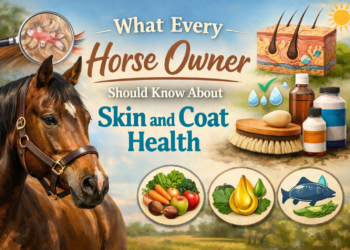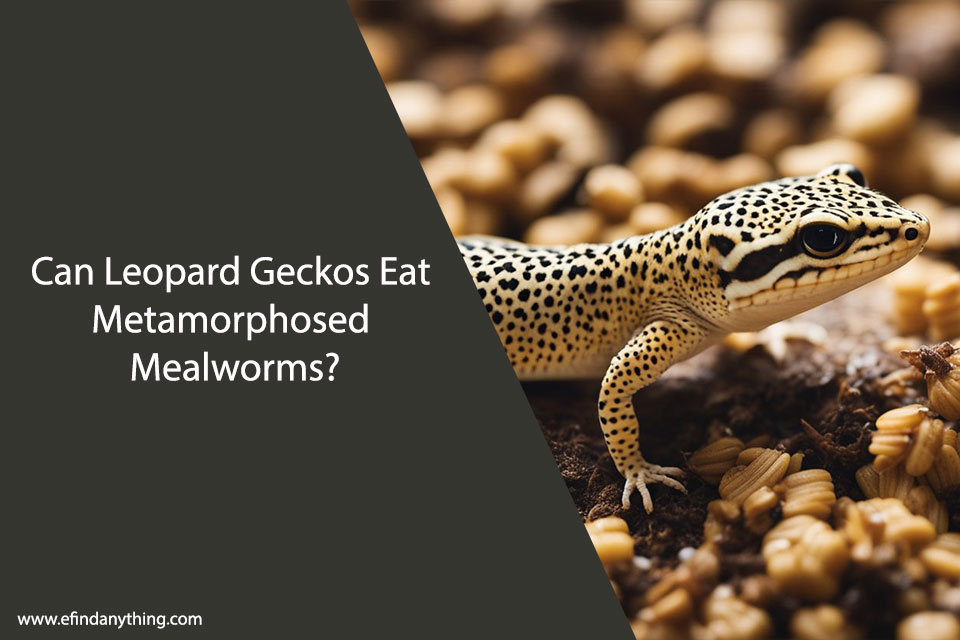Leopard geckos are one of the most popular pet reptiles in the world, and for good reason. They are relatively easy to care for, have unique personalities, and are fascinating to observe. However, as with any pet, it’s important to know what they can and cannot eat. One common question that arises among leopard gecko owners is whether they can eat mealworms and beetles.
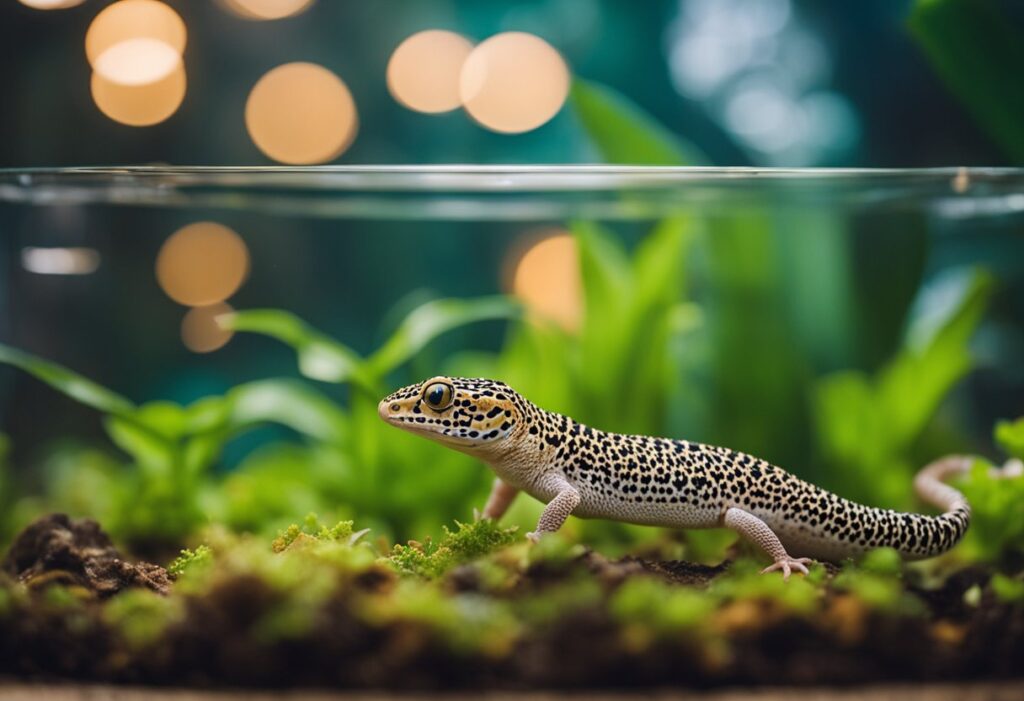
Mealworms and beetles are common feeder insects for many reptiles, including leopard geckos. In fact, they are often recommended as a staple food for these lizards due to their high protein content and ease of availability. However, it’s important to ensure that the mealworms and beetles are properly gut-loaded and dusted with calcium and other essential nutrients before feeding them to your leopard gecko. Failure to do so can result in nutritional deficiencies and health problems for your pet.
Additionally, some leopard geckos may have individual dietary preferences or health conditions that require a different diet. It’s always a good idea to consult with a veterinarian or experienced reptile keeper before making any major changes to your leopard gecko’s diet. By providing a balanced and varied diet, you can help ensure that your leopard gecko stays healthy and happy for years to come.
Can Leopard Geckos Eat Mealworms and Beetles?
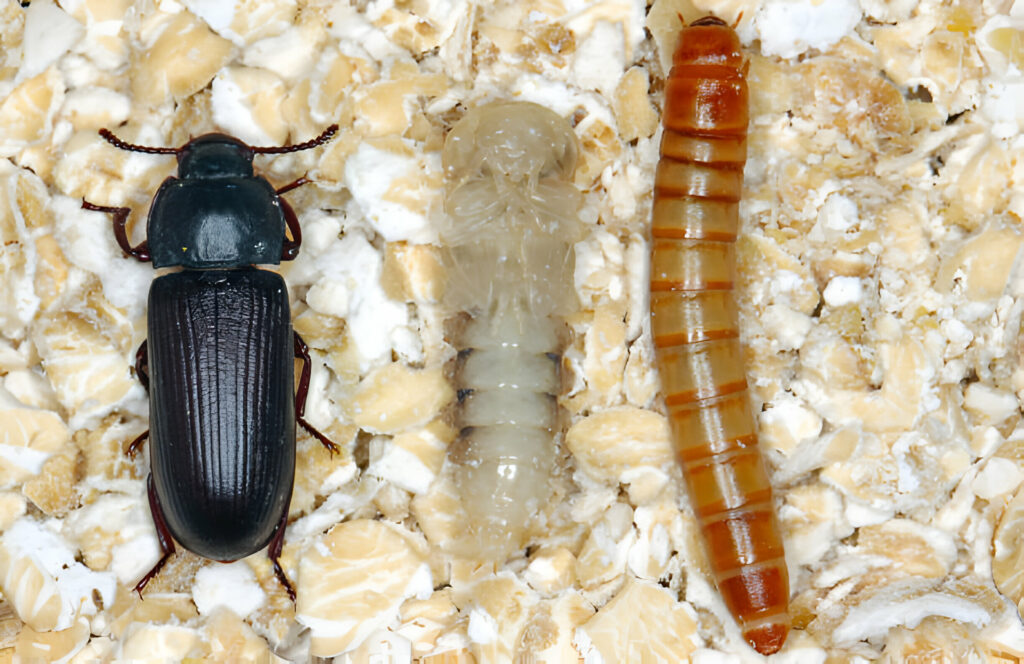
Leopard geckos are insectivores and require a diet consisting of a variety of insects. Mealworms and beetles are commonly fed to leopard geckos, but can they eat them?
Mealworms
Mealworms are a popular food choice for leopard geckos. They are easy to find and are sold in most pet stores. Mealworms are high in protein and fat, making them a nutritious food source for leopard geckos.
However, it is important to note that mealworms have a hard exoskeleton that can be difficult for leopard geckos to digest. To make mealworms easier to digest, they should be gut-loaded with nutritious food before feeding them to leopard geckos.
Beetles
Beetles are another insect that leopard geckos can eat. They are also high in protein and fat, making them a nutritious food source. However, like mealworms, beetles have a hard exoskeleton that can be difficult for leopard geckos to digest.
It is important to note that not all beetles are safe for leopard geckos to eat. Some beetles, such as the blister beetle, are toxic and can cause serious health problems or even death if ingested. Therefore, it is important to only feed leopard geckos safe beetle species, such as the mealworm beetle or the superworm beetle.
In conclusion, leopard geckos can eat mealworms and beetles, but it is important to ensure that they are gut-loaded and that only safe beetle species are fed to them.
Nutritional Benefits of Mealworm Beetles for Leopard Geckos
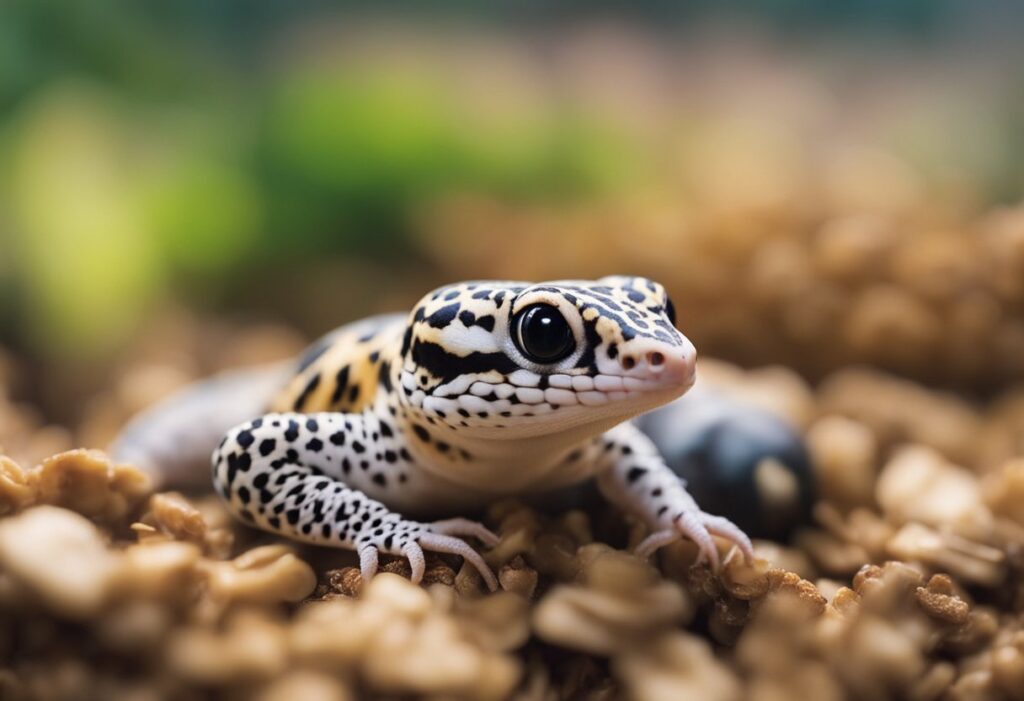
Mealworm beetles are a popular food choice for leopard geckos due to their high nutritional value. These beetles are a rich source of protein, which is essential for the growth and development of leopard geckos. In addition, they provide important vitamins and minerals that are necessary for maintaining a healthy diet.
One of the key benefits of feeding mealworm beetles to leopard geckos is their high protein content. Protein is vital for the growth and repair of body tissues, and it is especially important for young leopard geckos. Mealworm beetles contain up to 20% protein, making them an excellent source of this essential nutrient.
In addition to protein, mealworm beetles also provide important vitamins and minerals that are necessary for leopard geckos to maintain good health. They are a good source of vitamin B12, which is essential for the proper functioning of the nervous system. They also contain calcium, which is important for the development of strong bones and teeth.
Overall, mealworm beetles are an excellent food choice for leopard geckos due to their high nutritional value. They provide a rich source of protein, vitamins, and minerals that are essential for maintaining good health. When feeding mealworm beetles to leopard geckos, it is important to ensure that they are properly gut-loaded and dusted with calcium powder to ensure that they receive all of the necessary nutrients.
Feeding Guidelines for Leopard Geckos

Leopard geckos are insectivores and require a diet of live insects to maintain their health. Mealworms and beetles are common food items for leopard geckos, but it is important to follow some feeding guidelines to ensure that they receive a balanced diet.
Age-Related Dietary Needs
Leopard geckos have different dietary needs depending on their age. Juvenile leopard geckos require more protein and calcium than adult geckos to support their growth and development. As they mature, their dietary needs change, and they require a more balanced diet.
It is recommended to feed juvenile leopard geckos daily, while adult geckos can be fed every other day. It is also important to provide a variety of insects to ensure that they receive all of the necessary nutrients.
Frequency and Quantity of Feedings
The frequency and quantity of feedings for leopard geckos depend on their age and size. Juvenile geckos should be fed small amounts of insects multiple times a day, while adult geckos can be fed larger amounts less frequently.
A general guideline for feeding leopard geckos is to offer them as many insects as they can eat in 10-15 minutes. It is important not to overfeed leopard geckos as they can become overweight and develop health problems.
In conclusion, feeding leopard geckos a balanced diet of live insects is essential for their health and well-being. By following these feeding guidelines, leopard gecko owners can ensure that their pets receive the proper nutrition they need to thrive.
Preparing Mealworm Beetles for Consumption
Leopard geckos are known to be insectivores and mealworm beetles are one of the insects that they can consume. However, before feeding mealworm beetles to leopard geckos, it is important to properly prepare them.
Firstly, it is recommended to gutload the mealworm beetles for at least 24 hours before feeding them to the leopard geckos. This means feeding the beetles with vegetables or fruits to ensure that they are well-nourished and provide a balanced diet for the geckos.
Secondly, it is important to dust the mealworm beetles with calcium and vitamin D3 powder before feeding them to the leopard geckos. This helps to provide essential nutrients for the geckos and prevent any potential health issues.
Lastly, the mealworm beetles should be appropriately sized for the leopard geckos. It is recommended to feed the geckos mealworm beetles that are no larger than the space between their eyes to prevent choking hazards.
In summary, preparing mealworm beetles for consumption by leopard geckos involves gutloading, dusting with calcium and vitamin D3 powder, and appropriately sizing them. By following these steps, leopard geckos can safely consume mealworm beetles as part of their diet.
Potential Risks and Considerations
Chitin Content and Digestibility
Mealworms and beetles have a tough exoskeleton made of chitin, which can be difficult for leopard geckos to digest. While leopard geckos are capable of consuming chitin, excessive consumption can lead to digestive issues such as impaction. It is important to ensure that the mealworms and beetles are appropriately sized for the gecko and that they are not consuming too many at once.
Parasite Transmission Risk
Mealworms and beetles can carry parasites such as mites, which can be transmitted to leopard geckos during feeding. It is important to source mealworms and beetles from reputable suppliers and to ensure that they are properly cleaned and gut-loaded before feeding to the gecko. Regular monitoring of the gecko for signs of parasites is also recommended.
Allergic Reactions in Geckos
Leopard geckos can develop allergic reactions to certain foods, including mealworms and beetles. Symptoms of an allergic reaction may include swelling, redness, and difficulty breathing. If a gecko exhibits these symptoms after consuming mealworms or beetles, it is important to discontinue feeding them and seek veterinary care.
Overall, while mealworms and beetles can be a nutritious addition to a leopard gecko’s diet, it is important to carefully consider the potential risks and take appropriate precautions to ensure the gecko’s health and well-being.
Alternative Food Options for Leopard Geckos
Leopard geckos are known for their love of mealworms and other insects, but it’s important to provide them with a varied diet to ensure they get all the nutrients they need. Here are some alternative food options for leopard geckos:
Crickets
Crickets are a great source of protein for leopard geckos and are readily available at most pet stores. They can be fed live or pre-killed, and should be gut loaded before feeding to ensure they are packed with nutrients.
Dubia Roaches
Dubia roaches are becoming a popular alternative to mealworms for leopard geckos. They are high in protein and calcium, and are easy to digest. They can be purchased online or from specialty pet stores.
Waxworms
Waxworms are a high-fat treat that should be fed sparingly, but can be a good way to add some variety to your leopard gecko’s diet. They are soft-bodied and easy to digest, making them a good option for geckos that have trouble with harder insects.
Silkworms
Silkworms are another high-protein option for leopard geckos. They are soft-bodied and easy to digest, and are also a good source of calcium. They can be purchased online or from specialty pet stores.
Vegetables
While leopard geckos are primarily insectivores, they can benefit from the addition of some vegetables to their diet. Some good options include collard greens, kale, and carrots. Vegetables should be finely chopped or pureed and mixed with the gecko’s regular food.
Overall, providing your leopard gecko with a varied diet is key to keeping them healthy and happy. By incorporating some of these alternative food options, you can ensure that your gecko is getting all the nutrients they need to thrive.
Monitoring Your Leopard Gecko’s Health
Leopard geckos are generally hardy reptiles that are easy to care for, but it’s still important to monitor their health on a regular basis. Here are some tips for keeping your leopard gecko healthy:
1. Observe Their Behavior
One of the easiest ways to monitor your leopard gecko’s health is to observe their behavior. Healthy leopard geckos are active, alert, and curious. They should be moving around their enclosure, exploring their surroundings, and hunting for food. If your leopard gecko is lethargic, hiding all the time, or not eating, it could be a sign of illness.
2. Check Their Skin
Leopard geckos shed their skin every few weeks, so it’s important to check their skin for any abnormalities. Healthy leopard geckos should have smooth, shiny skin with no signs of dryness, flakiness, or discoloration. If you notice any bumps, lumps, or sores on your leopard gecko’s skin, it could be a sign of infection or disease.
3. Monitor Their Weight
Leopard geckos should be weighed regularly to ensure they are maintaining a healthy weight. A healthy adult leopard gecko should weigh between 45 and 70 grams. If your leopard gecko is losing weight or not gaining weight, it could be a sign of illness or malnutrition.
4. Keep Their Enclosure Clean
A clean environment is essential for maintaining your leopard gecko’s health. Their enclosure should be cleaned on a regular basis to prevent the buildup of bacteria and parasites. Substrate should be spot-cleaned daily and completely replaced every few weeks. Water should be changed daily and the enclosure should be disinfected periodically.
By following these tips, you can help ensure that your leopard gecko stays healthy and happy. If you notice any signs of illness or abnormal behavior, it’s important to consult with a veterinarian who specializes in reptile care.
Frequently Asked Questions
What alternative insects are safe for leopard geckos to consume?
Leopard geckos can consume a variety of insects, including crickets, dubia roaches, black soldier fly larvae, and silkworms. These insects are all safe for leopard geckos to eat and provide a balanced diet.
Is it safe for leopard geckos to eat the pupae of insects?
Leopard geckos can eat the pupae of insects, but it is not recommended as a staple food source. Pupae are high in chitin, which can be difficult for leopard geckos to digest.
Are darkling beetles a suitable food source for leopard geckos?
Darkling beetles, also known as mealworm beetles, are not a suitable food source for leopard geckos. They are high in chitin and can cause impaction if consumed in large quantities.
What are the risks of feeding superworm beetles to leopard geckos?
Superworm beetles are not recommended as a food source for leopard geckos. They are high in fat and can lead to obesity and other health issues if consumed in large quantities.
Can the consumption of mealworm beetles lead to health issues in leopard geckos?
Mealworm beetles are safe for leopard geckos to consume in moderation. However, they should not be the sole source of food as they are high in chitin and can cause impaction if consumed in large quantities.
How should mealworm beetles be prepared as food for leopard geckos?
Mealworm beetles should be gut-loaded for 24-48 hours before being fed to leopard geckos. They should also be dusted with calcium powder before feeding to provide essential nutrients.


